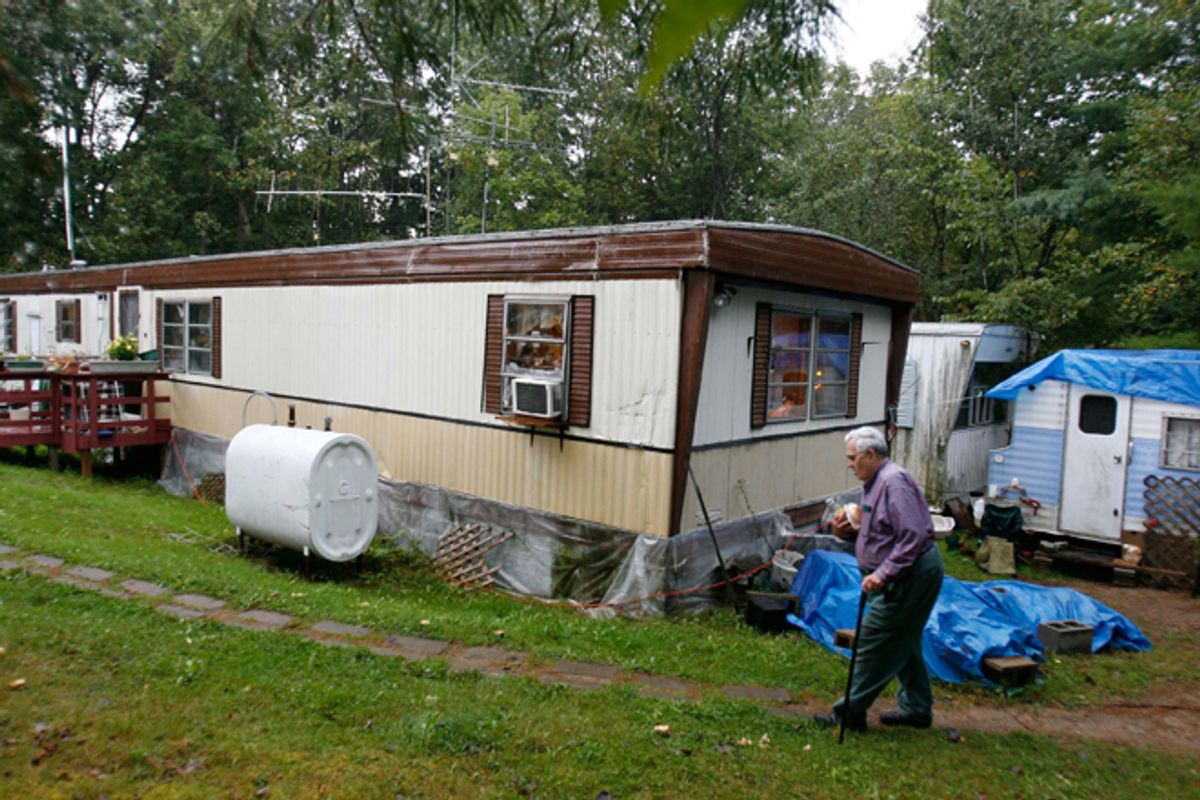The executive summary of brand-new numbers on poverty and health insurance released Wednesday by the U.S. Census: The rich are still getting richer, and the poor -- well, the poor have a little bit more health insurance than they used to.
"Income, Poverty, and Health Insurance Coverage in the United States: 2011" is an 81-page avalanche of statistics currently being devoured by wonks everywhere craving the latest information on the American standard of living.
If there's a surprise in the report, it's that after three successive years in which both the poverty rate and the absolute number of people living in poverty rose every year, in 2011 there was no statistically meaningful change in poverty over 2010.
The same is not true for median household income. Median household income fell sharply for the second straight year, down 1.5 percent to 50,054. The drop continues a long-standing trend; as economist Justin Wolfers points out, median family income fell in the United States "through the Bush boom, the Great Recession and the Obama recovery."
So if the question Mitt Romney is asking is "is your median household income better off today than four years ago?" the answer is, for most of us, no.
But not for all of us. Perhaps the most striking thing about the new report is how dramatically it illustrates growing income inequality in the United States. For the top 5 percent of Americans income grew by 4.3 percent in 2011 over 2010. For the top fifth of Americans, income grew by 1.6 percent. But for the second, third, and fourth quintiles -- aka "the middle class" -- income fell. (The poorest fifth of Americans held even.)
The main saving grace: health insurance coverage. Both the absolute number and total percentage of Americans without coverage fell.
But a little caution is necessary before rushing to credit Obamacare with the rise in healthcare coverage. While healthcare reform is surely responsible for a spike in the number of young people who have coverage through their parents, the biggest jumps in coverage are attributable to Medicaid and Medicare.
Which leads us seamlessly to an executive summary of the political implications of the new census numbers: The rich are getting richer, while the poor have more access to healthcare coverage -- and Republicans want to cut taxes for the rich, while slashing government-subsidized healthcare.



Shares